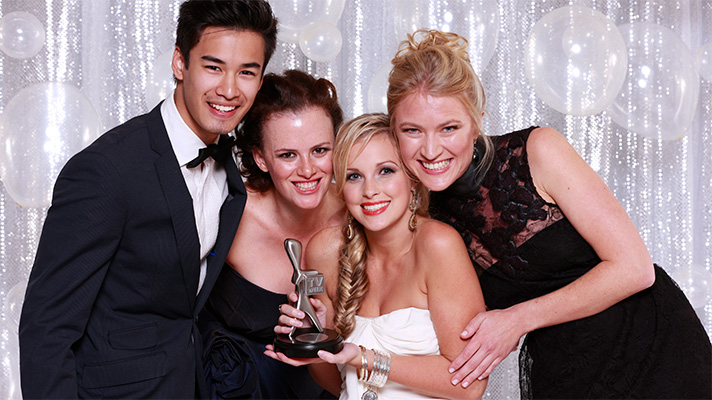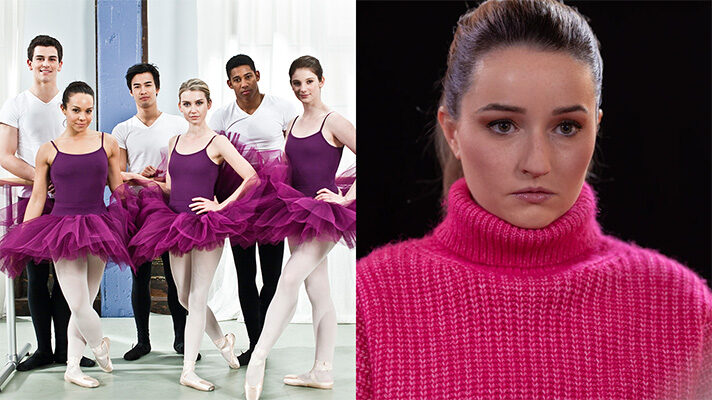The vital role of children’s television in the Australian screen ecosystem
Jenny Buckland
9 Apr 2025
Two women walk into a bar. The first asks, “if you could make any TV show in the world, what would it be?” The second replies, “I’d like to make a show about a girl from the country who gets into Australia’s top ballet school.”
The first woman in this anecdote is a young casting assistant named Samantha Strauss. The second is an emerging producer called Joanna Werner. The conversation takes place around 20 years ago at some pre-shoot drinks for the children’s television series H20: Just Add Water. When Joanna gives her reply, Samantha is stunned: she’s already started scripting a series with this very plot. A creative partnership is formed instantaneously, and the television series they’ve both dreamed of making becomes Dance Academy – a hugely successful series which has aired in 180 countries and has retained a loyal and dedicated fan base in the 15 years since it premiered.

Samantha Strauss and Joanna Werner with Dance Academy stars Jordan Rodrigues and Alicia Banit
If you’ve heard the names Joanna Werner and Samantha Strauss pop up recently, here’s why: Joanna is the Producer and Executive Producer of the award-winning series The Newsreader, the third and final season of which recently aired on the ABC. Samantha is the creator and writer of Apple Cider Vinegar, which has been one of the most watched Netflix series globally since it premiered in early February, and one of the most talked about. Following their joint success with Dance Academy, Joanna and Samantha’s careers have gone from strength to strength, and they have made a tremendous impact in adult scripted drama: Samantha’s writing credits include Nine Perfect Strangers and feature film The Dry; Joanna’s producer and executive producer credits include Clickbait and Surviving Summer.
Most of us understand why locally produced children’s television is valuable for its audience. Apart from its entertainment value, it also shapes identity. It is both a mirror and a window: when children see their lives reflected on screen, they experience recognition, affirmation, and gain positive role models. Australian children’s television builds empathy, kindness, and social cohesion.
But what is talked about less often is the vital role that children’s television plays in Australia’s screen ecosystem as a training ground for emerging actors and creatives, as it did for Joanna and Samantha.

Jeffrey Walker as Bronson on Round the Twist and directing Dance Academy: The Movie in New York
Another familiar face behind the success of Apple Cider Vinegar is that of Jeffrey Walker, an experienced director whose credits include The Artful Dodger and Modern Family. Jeffrey’s screen career also began in children’s television: his first recurring role was Bronson on the second season of the iconic children’s series Round the Twist. And guess what? Jeffrey was also the set-up director on Dance Academy. Meanwhile, back when Joanna and Sam were working on H2O: Just Add Water, one of the young leads was Phoebe Tonkin in her first screen role. Phoebe recently won an AACTA Award for her performance in the highly acclaimed Boy Swallows Universe.
Australian graduates hoping to break into the screen industry have limited pathways. In the absence of long-running dramas like All Saints and Blue Heelers, once a cornerstone of the Australian screen industry, there aren’t many opportunities for new and emerging creatives to cut their teeth. And with the cancellation of Neighbours this February, we’ve lost another key training ground. This makes the opportunities afforded by Australian children’s drama series all the more important. Now that most adult drama series are shorter, limited series, it’s the children’s dramas where producers and networks are willing to take a risk on someone new.
We also underestimate the profound influence of children’s television. Quality Australian children’s content is highly regarded internationally and has a long lifecycle both here and overseas – much longer than most feature films or adult dramas. Children’s series will be in the market for many years with a new generation of children discovering them every 2-3 years: there are ACTF supported shows that are still being sold and screened across the world more than 20 years after their initial success. When the latest Netflix engagement report came out recently screen critics and journalists were quick to point out that the recent release Australian adult drama Territory was the most successful Australian show in the list. No one pointed out that of the top 10 Australian titles globally for June-December 2024, six were children’s series. The Inbestigators series 1 and 2, released in 2019, were streamed 11.1 million times in the last six months and 9.6 million times in the six months before that. Meanwhile, last year Bluey was the most watched show on the planet.
Children’s television is consistently undervalued: it doesn’t command primetime broadcast schedules or drive new subscriptions to streaming services in the way that adult drama does, so it doesn’t command the levels of investment or the promotional attention. But when you consider the joy it brings to generations of children, its role in shaping our national identity, the training and employment opportunities it has provided to some of our screen industry’s leading lights, and the soft diplomacy it spreads around the world, the crucial contribution it makes to the Australian screen ecosystem is obvious.
We need to value and support this precious content.


Comments
Comments for this post are open.